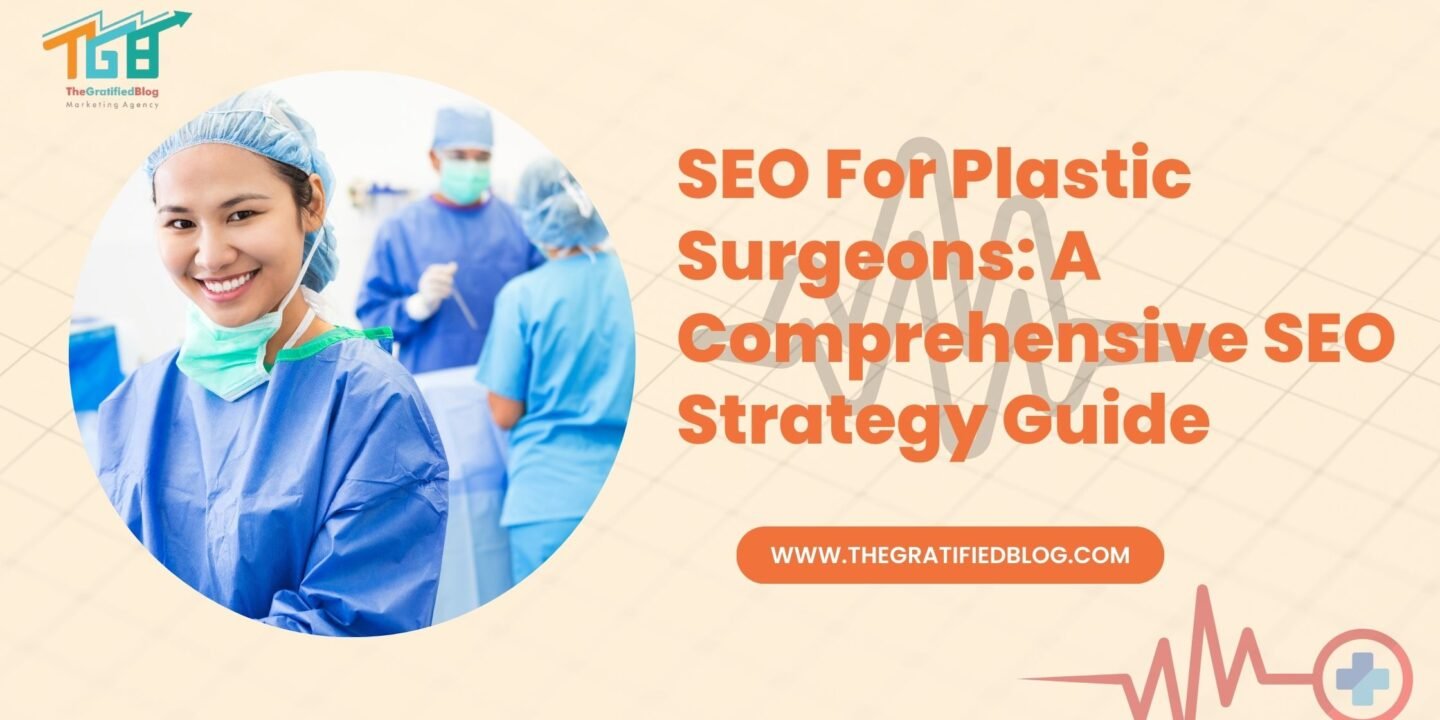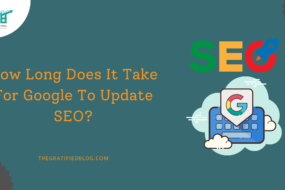
In today’s digital age, a plastic surgery practice’s success hinges on more than surgical skill and reputation; it’s also about your online presence. Prospective patients rely on search engines such as Google to discover the best plastic surgeons in their area. That’s where search engine optimization (SEO) for plastic surgeons comes into play. What is the demographic target for plastic surgery? SEO for plastic surgeons, offering actionable strategies to help your practice climb the ranks and attract more clients.
Before we dive into the specifics, it’s crucial to grasp the fundamental concepts of SEO. SEO is optimizing your website and online and developing content to attain superior rankings on Search Engine Results Pages (SERPs). Results Pages (SERPs) are essential for plastic surgeons; this means ensuring that when potential patients search for services like “rhinoplasty in [Your City],” your practice appears at the top of the list.
What Exactly Is Plastic Surgery SEO?
Plastic surgery SEO, often called “SEO for plastic surgeons,” is a specialized digital marketing strategy tailored to Enhance the online presence and accessibility of plastic surgery practices. It involves employing techniques and best practices to improve a plastic surgeon’s rankings to Position a website in the Search Engine Results Pages (SERPs) for relevant keywords and phrases.
SEO Strategies For Plastic Surgeons
here are the top 5 essential SEO strategies for plastic surgeons:
Keyword Research

Thoroughly research and target keywords related to plastic surgery procedures and your location. These keywords should be integrated into your website’s content and meta tags.
High-Quality Content

Create valuable, informative content that answers common questions and concerns potential patients may have. This content can include blog posts, procedure descriptions, and before-and-after galleries.
Local SEO For Plastic Surgeons

Focus on local SEO efforts by optimizing your Google My Business profile, acquiring positive patient reviews, and ensuring consistent NAP (Name, Address, Phone Number) information across online directories.
Mobile Optimization

Ensure your website caters to mobile users; many search for plastic surgery services on mobile devices. Responsive design and swift loading times on mobile devices. Are crucial.
Analytics And Monitoring

Incorporate web analytics tools like Google Analytics to monitor your website’s performance. Regularly analyze data to understand user behavior, identify areas that need enhancement, and modify your SEO strategy accordingly.
Bonus Tip: Stay Informed and Adapt – The world of SEO is dynamic, with search engine algorithms evolving regularly. Remain informed about the latest industry trends and any algorithm alterations to adjust your SEO strategies as needed.
What Is The Importance Of SEO For Plastic Surgeons?
Optimizing the online presence of plastic surgeons through Search Engine Optimization (SEO) is vital for various reasons:
- Increased Online Visibility: SEO helps plastic surgeons improve online visibility and enables potential patients to locate them effortlessly when searching for relevant keywords or phrases on search engines like Google. As your website secures a higher position in search results, you’re more likely to attract organic traffic.
- Credibility and Trust: A well-optimized website that appears at the pinnacle of search results is frequently regarded as more credible and trustworthy by potential patients. This can be especially important in the medical field, where trust and credibility are paramount.
- Targeted Traffic: SEO allows plastic surgeons to target Utilizing particular keywords and phrases associated with the services they offer. This means that the traffic to your website is more likely to consist of people actively seeking plastic surgery information or services, increasing the chances of converting these visitors into patients.
- Competitive Advantage: Many plastic surgeons and medical practices invest in digital marketing and online presence. Effective SEO strategies Can provide a competitive advantage by aiding you in distinguishing yourself in a saturated market.
- Affordable Marketing: Unlike traditional advertising methods, SEO is often more cost-effective in the long run; once your website establishes a strong ranking By ranking well for pertinent keywords, you can draw a consistent flow of organic traffic without the recurring costs associated with other forms of advertising.
- Local SEO for Patient Acquisition: Local SEO is crucial for plastic surgeons primarily serving a local or regional area. Optimizing your website for local search terms, setting up Google My Business listings, and managing online reviews can help attract patients in your immediate vicinity.
- Mobile Optimization: Many people search for plastic surgery information and services on their mobile devices. An SEO strategy that includes mobile optimization ensures the accessibility and user-friendliness of your website on various devices, especially on mobile platforms. Mobile devices and tablets, improving the user experience and potential patient conversions.
- Content Marketing: SEO often goes hand in hand with content marketing. Establishing yourself as an authority in plastic surgery can be achieved by generating informative and valuable content and attracting patients seeking reliable information and guidance.
- Analytics and Insights: SEO tools and analytics provide valuable data on user behavior, search trends, and the effectiveness of your online marketing efforts. Utilizing this data enables you to fine-tune your strategies and make decisions based on data, enhancing your online presence further.
- Adapting to Changing Trends: SEO is not static. Search engine algorithms and user behavior evolve. Staying updated with SEO best practices allows plastic surgeons to adapt to these changes and remain competitive online.
How Does Local SEO Play A Crucial Role In Attracting Patients To Plastic Surgery Practices?
Local SEO plays a crucial role in attracting patients to plastic surgery practices by:
- Targeting Local Audience: It optimizes your online presence To be visible in local search results when potential patients search for services in their specific geographic area.
- Google My Business: It enhances your Google My Business profile, making it easier for patients to find essential information like your location, contact details, and reviews.
- Positive Reviews: Encouraging and managing patient reviews boosts your practice’s reputation, essential for local SEO rankings and building trust with potential patients.
- Local Directories: Ensuring consistent NAP (Name, Address, Phone Number) information across online directories and listings helps search engines validate your practice’s location and legitimacy.
- Localized Content: Creating content tailored to local interests and needs establishes your practice as a trusted local authority in plastic surgery, attracting nearby patients.
By focusing on local SEO, plastic surgery practices Can efficiently connect with and captivate their target audience in the immediate vicinity, increasing the likelihood of attracting new patients.
FAQs
Q1. How Do You Promote A Plastic Surgeon?
To promote a plastic surgeon effectively, it’s crucial to establish a solid online presence through Creating a professionally optimized website and actively participating on social media platforms such as Instagram and Facebook to showcase your work and connect with potential patients. Encouraging positive online reviews from satisfied patients on platforms like Google My Business and RealSelf can build trust.
Q2. What Is The Demographic Target For Plastic Surgery?
The target market for plastic surgery typically includes individuals seeking to enhance or alter their appearance for personal, medical, or aesthetic reasons. This demographic may encompass various ages, from young adults to seniors, with varying motivations. More youthful individuals may seek cosmetic procedures for aesthetic improvements, while older individuals may opt for reconstructive surgery for medical or age-related concerns.
Conclusion
SEO for plastic surgeons” is an essential digital strategy to improve online visibility and draw in potential patients. Building a robust online presence involves optimizing your website and prioritizing local SEO.
We’d love to hear your thoughts and experiences with SEO in the plastic surgery field. Please feel free to comment on our blog and share your insights!
Also Read: Why SEO For Financial Advisors Are Important, and
Why SEO For Wedding Photographers Are Important








No Comments